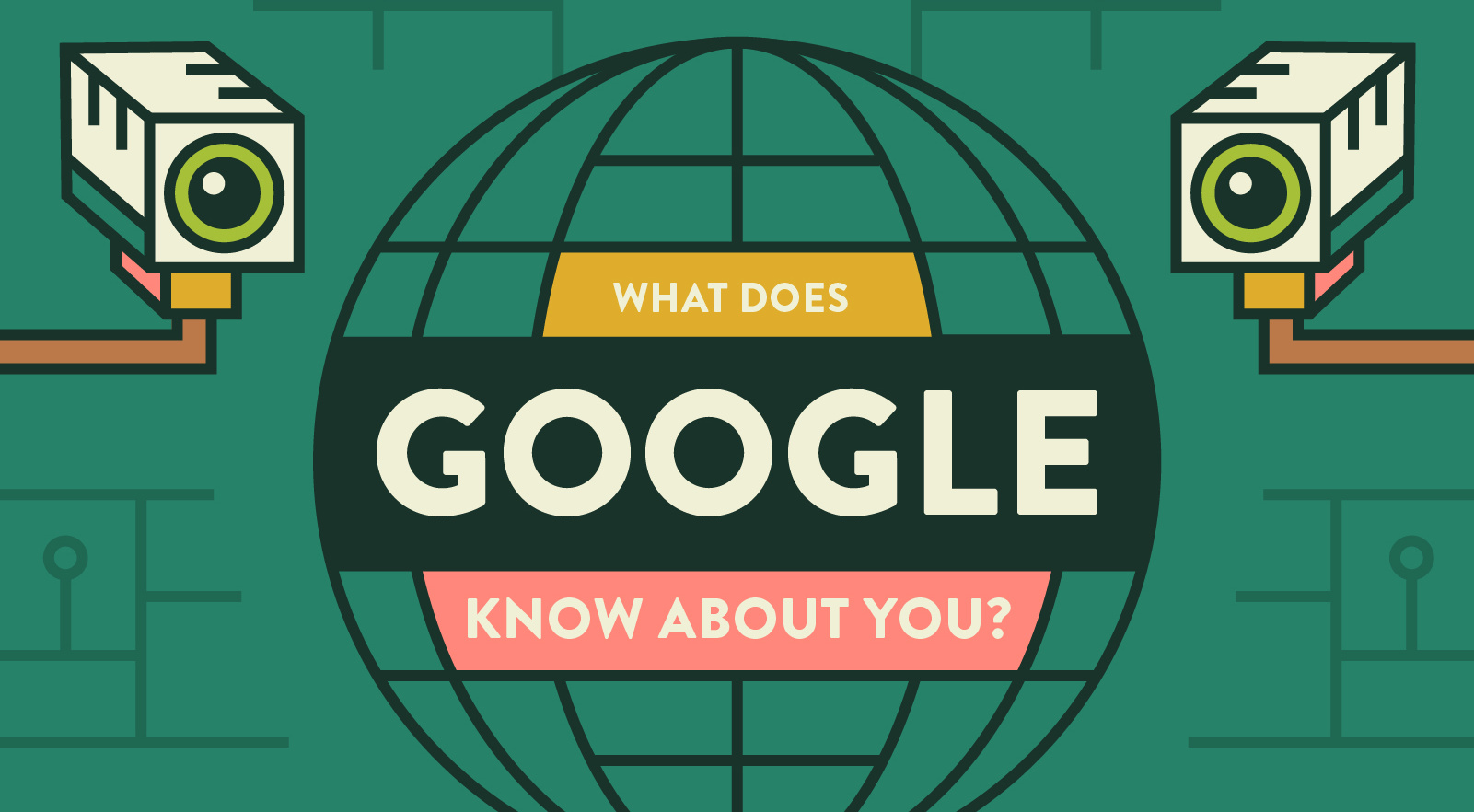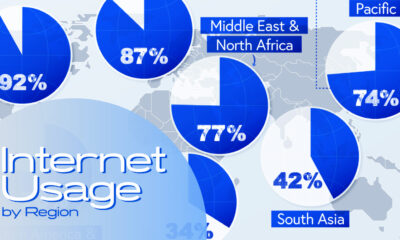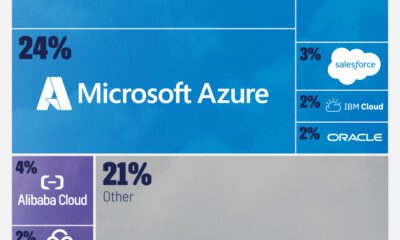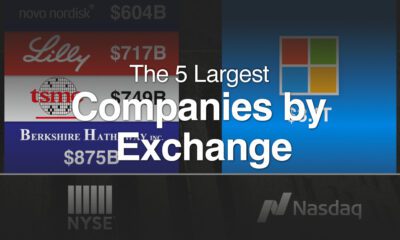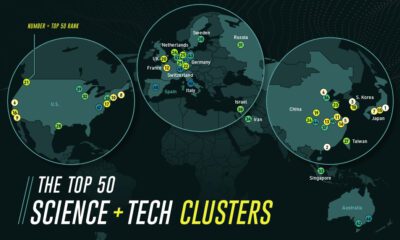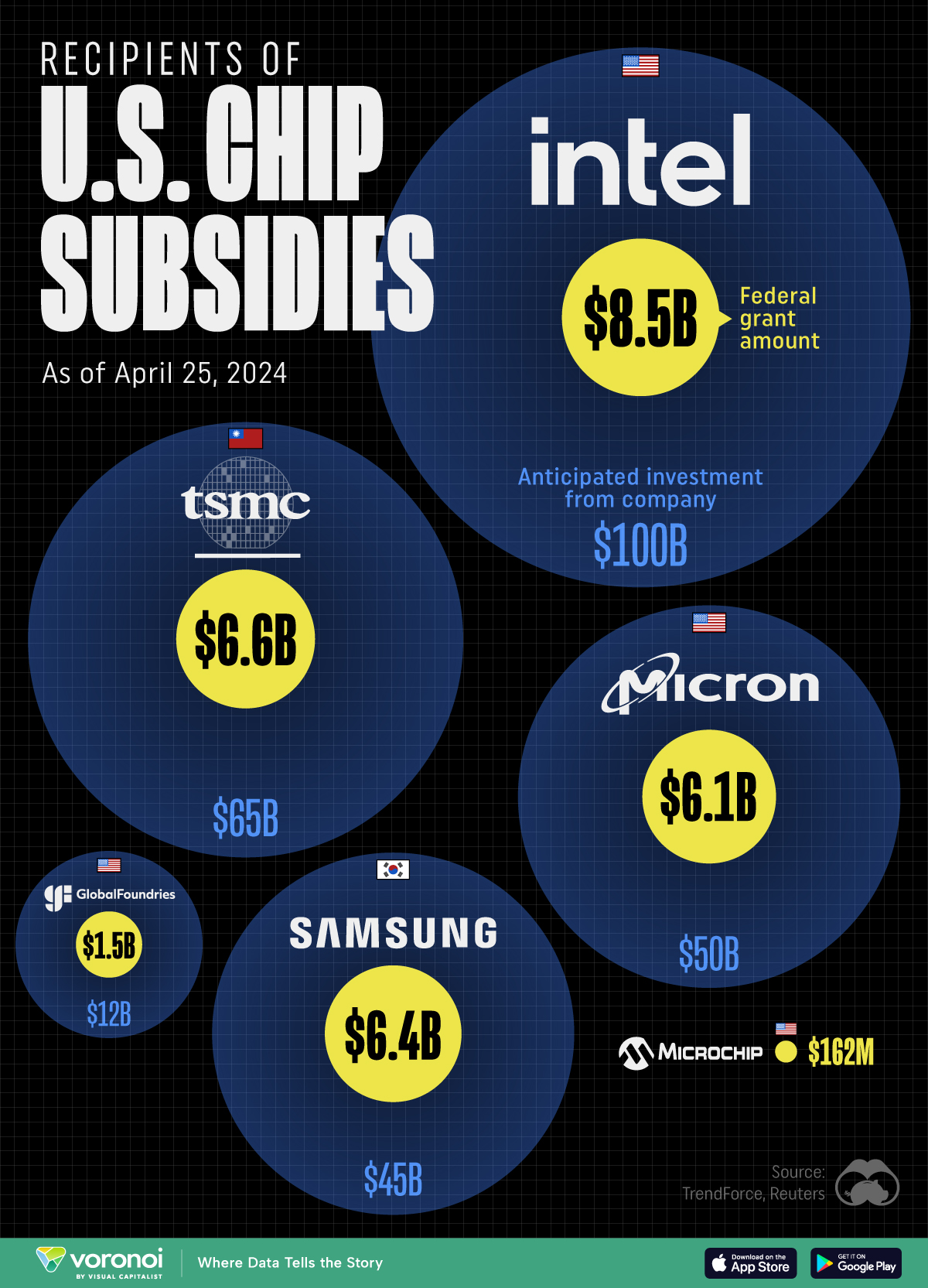Technology
What Does Google Know About You?
Data is what fuels the information economy.
And while there are many varieties of data clogging up the internet’s bandwidth, there is one specific type of data that is known to be particularly lucrative: personal data.
Like many other enterprising tech giants, Google must accumulate massive amounts of personal data to monetize its services – and in the process, the company develops an astonishingly robust picture of what you’re all about.
What Google Knows
Today’s infographic comes to us from TheBestVPN and it shows what Google knows about you, how the tech giant gathers that information, and a few solutions to stop Google from tracking you.

Through its various apps and services, Google can craft a robust profile on you and your activity on the internet.
Google, like Facebook, uses this personal information to target customized advertisements to you, however you decide to use the internet. This can be via search, mobile phone, Gmail, Youtube, or other apps that run ads connected to the Google network.
Crafting a Perfect Profile
Here is what Google knows about you, based on this information:
Who You Are
Google knows what you look like, what you sound like, your political and religious beliefs, and how healthy you are. The search giant also knows if you have children, or if you have specific dietary restrictions.
Where You’ve Been
Google uses location tracking to know where you live, where you work, and everywhere you’ve traveled.
Who Your Friends Are
Google knows who you talk to, and what you talk about. It also knows who you’ve been with, and when.
What You Like and Dislike
Based on your search queries, Google knows the food, books, movies, videos, and stores that you like or dislike.
Your Future Plans
Your search queries tell a story about what you are thinking about, including your future plans. Have you started searching for information about parenting techniques? If so, Google knows that you are expecting.
Your Online Life
Google also knows all of the websites you’ve visited, your data that autofills, and your bookmarked pages.
Opting Out
If you really want to decrease the amount of data that Google has on you, there are a few options available, including:
- Adjusting privacy settings
- Using private browsing
- Using a different browser for search
- Turning of your location settings
- Deleting your Google accounts
- Using a VPN
Of course, not many of these options are particularly convenient – so get used to the idea that Google will continue to know more and more about you as time goes on.
Technology
All of the Grants Given by the U.S. CHIPS Act
Intel, TSMC, and more have received billions in subsidies from the U.S. CHIPS Act in 2024.
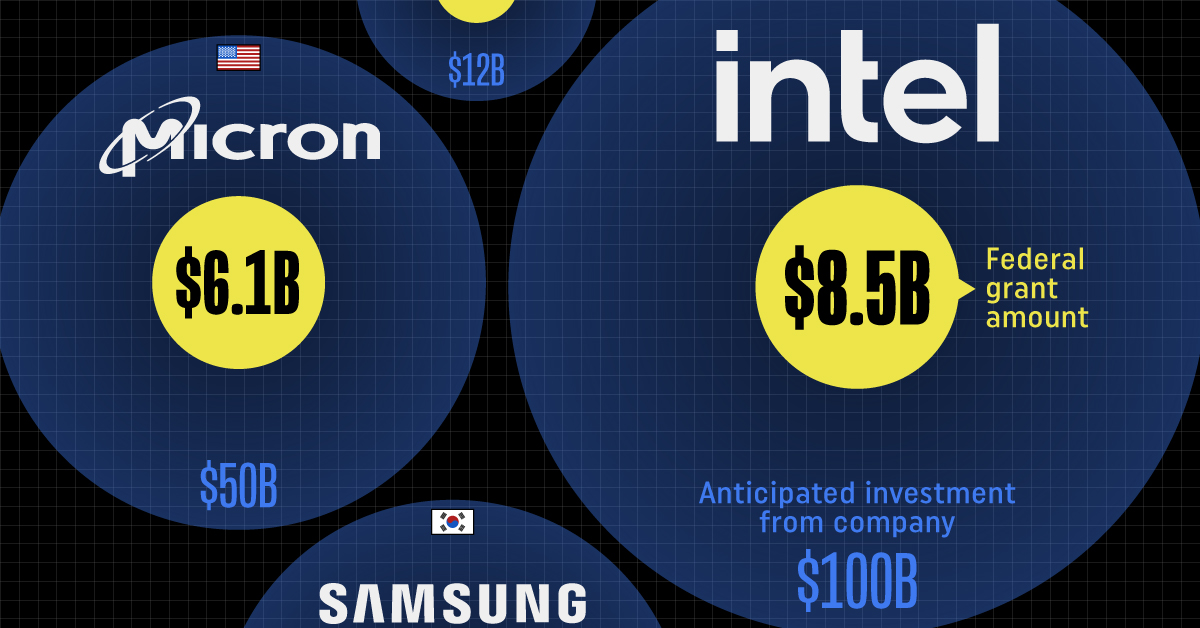
All of the Grants Given by the U.S. CHIPS Act
This was originally posted on our Voronoi app. Download the app for free on iOS or Android and discover incredible data-driven charts from a variety of trusted sources.
This visualization shows which companies are receiving grants from the U.S. CHIPS Act, as of April 25, 2024. The CHIPS Act is a federal statute signed into law by President Joe Biden that authorizes $280 billion in new funding to boost domestic research and manufacturing of semiconductors.
The grant amounts visualized in this graphic are intended to accelerate the production of semiconductor fabrication plants (fabs) across the United States.
Data and Company Highlights
The figures we used to create this graphic were collected from a variety of public news sources. The Semiconductor Industry Association (SIA) also maintains a tracker for CHIPS Act recipients, though at the time of writing it does not have the latest details for Micron.
| Company | Federal Grant Amount | Anticipated Investment From Company |
|---|---|---|
| 🇺🇸 Intel | $8,500,000,000 | $100,000,000,000 |
| 🇹🇼 TSMC | $6,600,000,000 | $65,000,000,000 |
| 🇰🇷 Samsung | $6,400,000,000 | $45,000,000,000 |
| 🇺🇸 Micron | $6,100,000,000 | $50,000,000,000 |
| 🇺🇸 GlobalFoundries | $1,500,000,000 | $12,000,000,000 |
| 🇺🇸 Microchip | $162,000,000 | N/A |
| 🇬🇧 BAE Systems | $35,000,000 | N/A |
BAE Systems was not included in the graphic due to size limitations
Intel’s Massive Plans
Intel is receiving the largest share of the pie, with $8.5 billion in grants (plus an additional $11 billion in government loans). This grant accounts for 22% of the CHIPS Act’s total subsidies for chip production.
From Intel’s side, the company is expected to invest $100 billion to construct new fabs in Arizona and Ohio, while modernizing and/or expanding existing fabs in Oregon and New Mexico. Intel could also claim another $25 billion in credits through the U.S. Treasury Department’s Investment Tax Credit.
TSMC Expands its U.S. Presence
TSMC, the world’s largest semiconductor foundry company, is receiving a hefty $6.6 billion to construct a new chip plant with three fabs in Arizona. The Taiwanese chipmaker is expected to invest $65 billion into the project.
The plant’s first fab will be up and running in the first half of 2025, leveraging 4 nm (nanometer) technology. According to TrendForce, the other fabs will produce chips on more advanced 3 nm and 2 nm processes.
The Latest Grant Goes to Micron
Micron, the only U.S.-based manufacturer of memory chips, is set to receive $6.1 billion in grants to support its plans of investing $50 billion through 2030. This investment will be used to construct new fabs in Idaho and New York.
-

 Energy1 week ago
Energy1 week agoThe World’s Biggest Nuclear Energy Producers
-

 Money2 weeks ago
Money2 weeks agoWhich States Have the Highest Minimum Wage in America?
-

 Technology2 weeks ago
Technology2 weeks agoRanked: Semiconductor Companies by Industry Revenue Share
-

 Markets2 weeks ago
Markets2 weeks agoRanked: The World’s Top Flight Routes, by Revenue
-

 Countries2 weeks ago
Countries2 weeks agoPopulation Projections: The World’s 6 Largest Countries in 2075
-

 Markets2 weeks ago
Markets2 weeks agoThe Top 10 States by Real GDP Growth in 2023
-

 Demographics2 weeks ago
Demographics2 weeks agoThe Smallest Gender Wage Gaps in OECD Countries
-

 United States2 weeks ago
United States2 weeks agoWhere U.S. Inflation Hit the Hardest in March 2024
